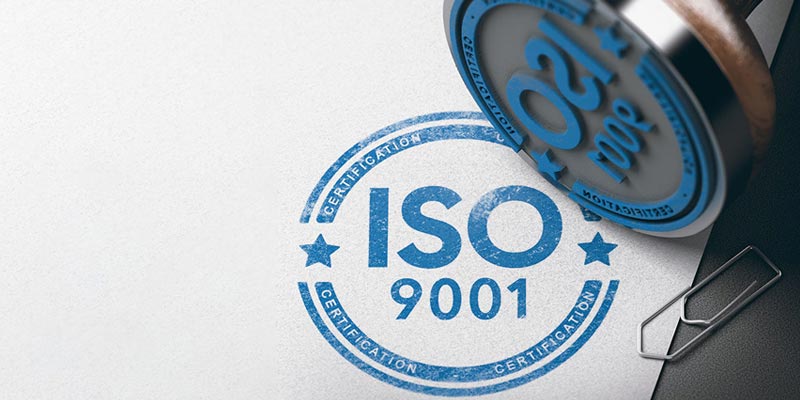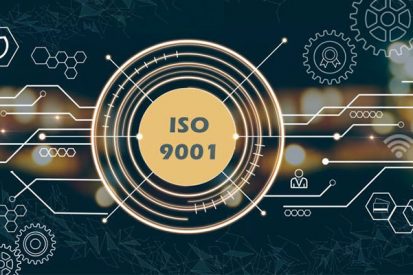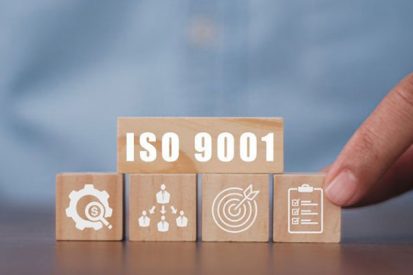A Quality Management System (QMS) is a set of systemised processes designed to ensure consistency in the quality of an organisation’s product or services. A QMS can help an organisation meet their customer expectations and any government regulations which may be required of their industry.
The ISO 9001 standard focuses on quality control by promoting a process approach to management. Through the diligent implementation of the recommendations in the standard, an organisation can ensure that it is providing quality products and services. you can get more information on implementation iso 9001 page.
Why is ISO 9001 important?
ISO standards are globally recognised, allowing for a consistent framework of quality management regardless of where your organisation is located. Consequently, it makes business between organisations of different countries easier as you are given a standardised set of practises and work instructions.
Following a framework for quality management is beneficial even if your business is strictly domestic. The framework streamlines the processes and eliminates confusion about expectations. Additionally, the framework also improves the efficiency and encourages progress as your company grows. This continuous improvement can inspire confidence amongst your stakeholders, customers as well as other board members.
On the ISO 9001 preparation page, you can get complete information about how the organization is preparing to receive ISO.
The reason why ISO 9001 is given such relevance across the globe is due to its unique quality management principles.
Every business is distinct and therefore the challenges it faces regarding quality maintenance are also distinct. The malleable nature of these seven quality principles allows organisations to customise the quality control in accordance to their unique circumstance or challenges.

The seven quality management principles
The seven Quality Management Principles (QMP) form the core of ISO 9001. Application of these principles helps an organisation optimise its QMS. All QMPs are equally important and their significance may vary depending on the needs and priorities of your organisation.
On the ISO 9001 documentation page, you can learn about the types of documents required to obtain ISO.
1. Leadership
When leaders at all levels establish unity of purpose and direction, conditions are created within an organisation that engages people. Unity regarding the strategic direction of the organisation and clarity regarding roles and responsibilities lead to the achievement of quality objectives.
2. Customer focus
The main purpose of quality management is to enhance customer satisfaction. Striving to exceed customer expectations and meeting customer requirements are the core principles of ISO 9001. The standard defines customer satisfaction as a perception of the degree to which a customer’s requirements have been fulfilled. By clearly outlining processes and procedures to measure customer satisfaction, instead of relying on subjective judgement helps an organisation retain its customers.
3. Engagement
Content, engaged and empowered people at all levels throughout the organisation helps to enhance the quality management process. The ISO 9001 asks the leaders of the organisation to engage with people through the allocation of proper resources and the development of appropriate processes.
4. Process approach
When the results from a business process are consistent and predictable, they help the business process function effectively and efficiently as a coherent system.

5. Improvement
Only those organisations that truly commit themselves to continual improvement remain successful in a competitive market. The ISO 9001 urges organisations to conduct regular evaluations to measure if there QMS is functioning as intended.
6. Evidence-based decision making
Decisions that are based on analysis and evaluation of information are more likely to produce desired results. The ISO 9001 creates unique quality metrics for organisations to utilise in their decision-making process.
6. Relationship management
To achieve sustainability in success, organisations need to manage their relationship with interested parties. ISO 9001 provides organisations with unique strategies to maintain ongoing levels of engagement with its audience.

Should you acquire ISO 9001 certification?
The ISO 9001 standard is a part of the ISO 9000 family of standards that address quality management. However, amongst these, only the ISO 9001 is eligible for certification. It is important to note that certification to the ISO 9001 is not a legal requirement and the auditing certification process may require time and financial resources. Still, many organisations choose to become ISO 9001 certified because they realise the advantages of the certification.
Acquiring ISO compliance from a certification body accredited by ISO’s Committee on Conformity Assessment (CASCO) demonstrates that your organisation is sincere about quality assurance. As a result, the reputation of your organisation is enhanced, giving you a competitive edge over your non-certified peers.
Certification also ensures that the QMS is functioning at its full potential, implying that your processes are running efficiently and effectively. Hence, your products and services will meet customer requirements as well as regulatory and statutory obligations.
Some clients, specifically look for certification when shopping for services or products as they want assurance. Implementing the QMS will help you assess the overall context of your organisation to define who is affected by your work and what they expect from you.
This will enable you to clearly state your objectives and identify new business opportunities. Moreover, the application of the QMP allows you to put your customers first, making sure that you consistently meet their expectations and enhance their satisfaction. This can lead to repeated customers, new clients and increased business revenue for your organisation.






Users Comments
Get a
Quote